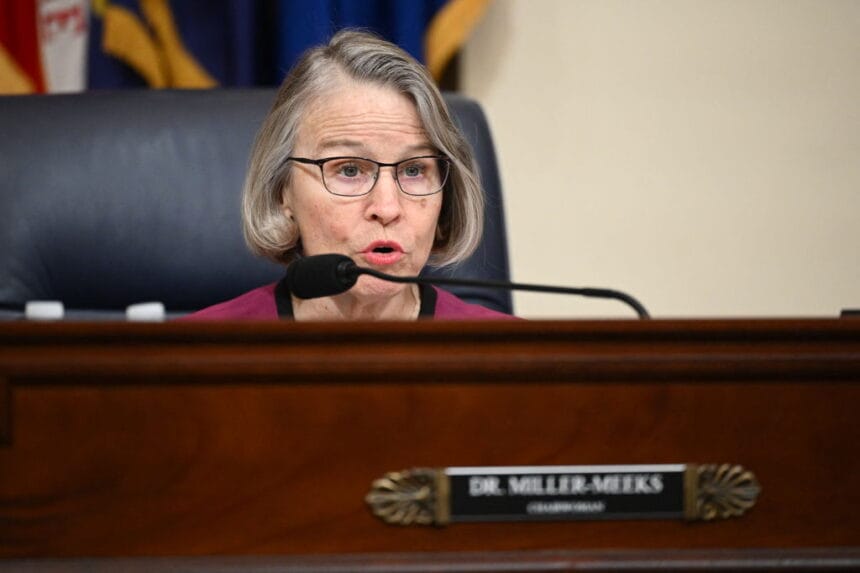When it comes to federal healthcare policy, the name on everyone’s lips are pharmacy benefit managers (PBM).
Legislation designed to reign in certain practices of PBMs is slowly moving forward in Congress with the goal of halting the rise in rising healthcare prices.
Earlier this month, the House Committee on Oversight and Accountability voted to advance yet another PBM reform bill — called the Delinking Revenue from Unfair Gouging, or DRUG, Act.
The bipartisan bill was introduced by Rep. Mariannette Miller-Meeks (R-Iowa), and would take aim at so-called “spread pricing,” a practice in which PBMs charge insurers more than what they pay pharmacies.
The proposal would also ban PBMs from linking rebates to the list prices of drugs, and instead require them to provide a flat service fee — a policy known as “delinking.”
“Rarely a day goes by that I don’t hear from constituents concerned about the high cost of prescription drugs,” Rep. James Comer, (R-KY), said in a statement. “I am pleased the committee is considering such important legislation to reign in these PBMs and curb these abusive practices.”
Life under the microscope
The move reflects the continued bipartisan support for legislation that targets PBMs, even as Congress continues to place the heat on the pharma industry.
During the recent Senate HELP committee in which Sen. Bernie Sanders, (I-VT), grilled the CEOs of Johnson & Johnson, Merck and Bristol Myers Squibb over high drug costs, the pharma execs sought to scapegoat the PBM industry for cutting into “the assistance that pharma companies intend for patients.”
Lobbying groups such as the Pharmaceutical Care Management Association (PCMA) shot back shortly thereafter and shifted the blame to pharma companies. These entities have also expressed opposition to the DRUG Act.
“Make no mistake, drug companies’ constant blaming of PBMs is designed to avoid accountability and further boost profits and pricing power,” the PCMA noted in a statement. PCMA also claimed that PBM-negotiated rebates are not linked to drug prices.
Meanwhile, TransparencyRx, a nonprofit coalition of PBMs that advocates for transparency in the industry, expressed support for the new bill.
Joe Shields, managing director of TransparencyRx, called the DRUG Act “notable,” in that it takes steps to “ameliorate the burden of high list prices that big PBMs have shifted onto patients and plans.”
“In a delinked or transparent approach, fees are disclosed, reliable and knowable,” Shields added in a statement. “Linking list prices to rebates is one of the most egregious modern-day practices big PBMs employ, as it helps drive up list prices in order to extract higher rebates for formulary placement. Without delinking, patients come second to PBM profits.”
Shields added that the organization continues to support legislative proposals that increase transparency and oversight of PBM practices.
Such examples over the past year include several reform bills that have been debated in Congress, including the Pharmacy Benefit Manager Transparency Act of 2023, the Protect Patient Access to Pharmacies Act, among others.
In November, the Senate Finance Committee passed a draft healthcare package that included PBM reform alongside mental health provisions. However, where the debate goes in terms of tangible action on PBMs remains to be seen.







